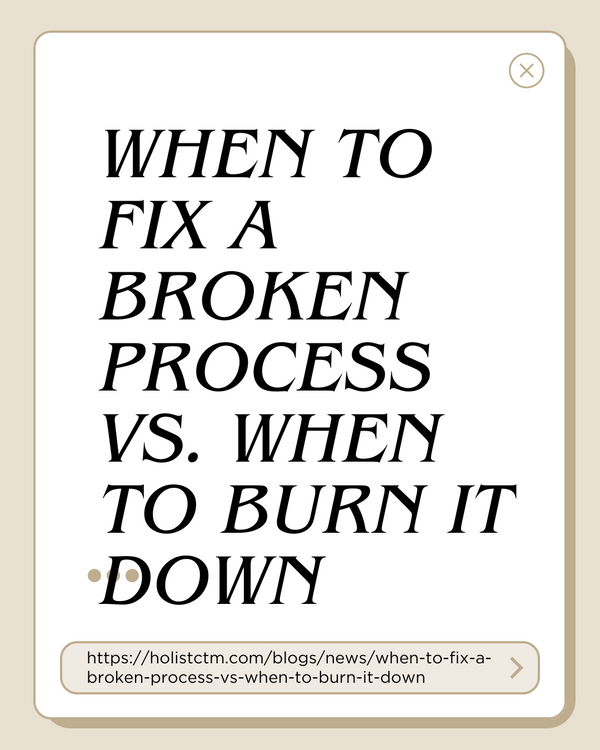Latest from our blog
Discover insights, updates, and helpful content.

Reporting errors in property management can be costly and damaging. Missed payments, misstated accounts, or compliance slip-ups aren’t just minor glitches — they’re failures waiting to happen. In this post, we’ll explore how property management reporting audits can recalibrate your systems, save time and money, and protect your reputation.
Accuracy in reporting is the foundation of every property management business. Here’s why it’s non-negotiable:
Trust Accounting Compliance: Property managers handle trust accounts that hold tenant and owner funds. Inaccurate balances or records can trigger audits, fines, or even loss of license. Staying accurate is a legal obligation, not just a best practice.
Landlord Transparency & Confidence: Owners rely on clear financial reports. Precise, timely reporting builds trust, strengthens relationships, and increases client retention. Inaccurate or confusing reports erode confidence quickly.
Tenant Disputes: Errors in rent ledgers, deposits, or charges can escalate into disputes. Accurate records prevent conflict, reduce back-and-forth communication, and help resolve tenant queries with data-backed clarity.
Business Reputation & Legal Obligations: Financial mismanagement can damage your brand and even lead to legal repercussions. Providing truthful and accurate reports shields your business from compliance issues and reputational harm.
A reporting audit is a comprehensive review of financial and operational reports to identify and correct discrepancies.
It involves checking rent rolls, owner payouts, maintenance invoices, cash flow, and trust account records to ensure that all data is accurate and consistent. Reporting audits help catch missing entries, duplicate payments, and misclassified expenses before they become larger problems.
Regular audits allow managers to maintain reliable data, improve compliance, and ensure that financial records reflect the true performance of each property.
Here are the most frequent reporting errors, their causes, and impacts:
| Error Type | Likely Cause | Potential Impact |
|---|---|---|
| Data Entry Mistakes | Manual input errors, typos, or transposed numbers | Inaccurate financial statements, incorrect balances, and reduced client trust |
| Missed Arrears / Overpayments | Duplicate entries, oversight in receivables/payables | Lost income, wasted funds, and disputes with owners, vendors, or tenants |
| Reconciliation Errors | Infrequent or incorrect bank reconciliations | Trust account imbalances, inaccurate owner reports, and compliance risks |
| Inconsistent Maintenance Billing | Poor workflow for logging and billing repairs/maintenance | Lost revenue, disputed charges, and lack of transparency in expense tracking |
Reporting audits strengthen operations in several ways:
Identify Recurring Discrepancies: Spot patterns like repeated miscodings or unrecorded fees.
Standardize Processes: Implement consistent data entry and reporting procedures across the team.
Automate Reconciliations and Checks: Use property management software to reduce human error and speed up reconciliation.
Cross-Check Tenant and Owner Data: Ensure ledgers, bank balances, and payout reports align.
Ongoing Improvement: Regular audits create a feedback loop that keeps reporting accurate year-round.
Correct discrepancies and train staff to avoid repeat errors.
Create standardized templates and enforce regular reconciliation schedules.
Implement automation tools for reconciliations, alerts, and data integrity checks.
Add cross-checks and internal controls, such as three-way reconciliations.
Document processes and schedule recurring audits to maintain accuracy.
Modern property management platforms and reconciliation tools provide significant benefits for reporting accuracy.
| Tool / Platform | Key Functionality | Accuracy Gain |
|---|---|---|
| Buildium | Integrated accounting, automated reconciliations, owner portals | Minimizes manual errors, ensures trust compliance, real-time report transparency |
| AppFolio | Financial diagnostics, automated rent and fee postings | Flags discrepancies instantly, reduces missed transactions, maintains clean books |
| PropertyMe | Audit-ready reporting, grouped monthly data, bank feeds | Organizes audit records, reduces compliance risk, improves transparency |
| Automated Reconciliation Tools | Daily syncs, anomaly detection, fraud alerts | Eliminates manual errors, detects duplicates/unauthorized charges, prevents fraud |
A mid-sized property management firm discovered a $30,000 discrepancy in tenant arrears during a reporting audit. The issue stemmed from spreadsheet errors and duplicate entries.
By conducting a full audit, correcting ledgers, adopting automated reconciliation tools, and scheduling monthly audits, the agency improved reporting accuracy by 98% within three months. Owners regained trust, disputes decreased, and staff spent fewer hours fixing mistakes.
Stronger Landlord Trust: Transparent reports improve retention and increase referrals.
Faster Compliance: Accurate records streamline audits and avoid penalties.
Reduced Disputes: Fewer tenant and owner conflicts save time and resources.
Better Decision-Making: Reliable data drives smarter budgeting, forecasting, and growth strategies.
Clear ROI: Fewer errors mean fewer fines, faster processes, and stronger client relationships.
Collect Data: Gather bank statements, ledgers, invoices, owner reports, and leases.
Reconcile Accounts: Perform bank and ledger reconciliations, including three-way reconciliations for trust accounts.
Review Reports: Check for consistent coding, templates, and correct categorization.
Use Automation: Run diagnostics or reconciliation tools to detect anomalies.
Fix & Repeat: Correct issues, train staff, document procedures, and schedule the next audit.
Inaccurate reports undermine trust, invite disputes, and risk compliance failures. Property management reporting audits ensure financial accuracy, transparency, and long-term business stability.
By making audits a regular part of your workflow, you build stronger relationships with owners, resolve tenant issues faster, and position your agency for sustainable growth.
Discover insights, updates, and helpful content.




